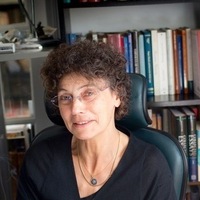Timing: A Jewish Art of Time
Sylvie Anne Goldberg
Understood as an objective measure of movement, time is both a scientific and philosophical concept, independent and autonomous from the way it is perceived. But as a human perception, time is a complex blend of cultural, social and religious properties which allows the intertwining of the sacred and the secular into the social network of groups and societies. Social sciences (history, sociology, anthropology etc.) have made up “time” as one of their key notions to analyze the social fabric, turning the way people and groups perceive and inhabit the flow of time into a matter for empirical study and accounting for the invention of the many tools societies have devised to handle the phenomenon (astronomical engines, clocks, almanacs, calendars, rituals, etc.) in domains such as religion, sports or politics.
Jews have a particular understanding and regulation of time, and, like other dispersed minorities, Jews share a common temporality wherever they might be across the world. This Jewish sense of “timing” stems from centuries of calculation, theological and scientific controversies and theoretical reflection.
This lecture will present some aspects dealt with in Sylvie Anne Goldberg’s book
Clepsydra. On the plurality of Time in Judaism (Stanford 2016).
Sylvie Anne Goldberg is a Brownstone Distinguished Visiting Professor in Jewish Studies at Dartmouth is the head of the Center of Jewish Studies at the École des Hautes Études en Sciences Sociales (EHESS) in Paris. Her research focuses on conceptual and cultural history of the Jews during medieval and early modern period.
